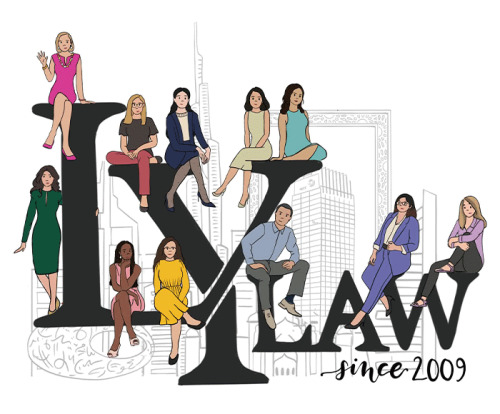Best Child Custody Lawyers in United Arab Emirates
Share your needs with us, get contacted by law firms.
Free. Takes 2 min.
Free Guide to Hiring a Family Lawyer
Or refine your search by selecting a city:
List of the best lawyers in United Arab Emirates
United Arab Emirates Child Custody Legal Articles
Browse our 1 legal article about Child Custody in United Arab Emirates written by expert lawyers.
- How is Child Custody Decided for Expats in Dubai?
- Table of ContentsIntroduction: Navigating Custody as an ExpatUnderstanding Custody and Guardianship in the UAEThe Role of the Family Court in DubaiKey Legal Rules and RequirementsCustody Age LimitsCustodian Eligibility RequirementsHow Custody Works for Expatriates in DubaiExploring Custody ArrangementsJoint Custody in the UAEGuardianship ExplainedThe Guiding Principle: Best Interests of the ChildPractical Considerations... Read more →
About Child Custody Law in United Arab Emirates
Child custody laws in the United Arab Emirates (UAE) are primarily governed by the UAE Personal Status Law, which is influenced by Islamic Sharia law. In the UAE, custody decisions focus on the welfare and best interests of the child. Unlike some Western jurisdictions, the UAE law prioritizes the child's welfare over strict legal entitlements. The law distinguishes between custody (hadana) and guardianship (wilaya); custody involves the day-to-day care of the child, whereas guardianship refers to legal responsibilities like education, medical care, and financial support. Typically, the mother is granted custody of young children unless evidence shows it is not in the best interest of the child. Fathers generally retain guardianship rights.
Why You May Need a Lawyer
There are several situations where you might require legal help in child custody issues in the UAE:
- If you are going through a divorce and there are disagreements about who should have custody or guardianship of the children.
- If you experience difficulties in implementing an existing custody arrangement due to parental alienation or other factors.
- If there are allegations of neglect, abuse, or other circumstances that could affect custody rights.
- If you are a non-Muslim resident and need guidance on how the Personal Status Law interacts with your faith-based customs.
- If you need to relocate to another country and there are disputes regarding the change in the child's living arrangements.
Local Laws Overview
Key aspects of UAE child custody laws include:
- Best Interests Principle: The child's wellbeing is the primary consideration in custody cases.
- Mother's Custody Rights: Generally, the mother has the right to custody of children up to a certain age, often until boys reach 11 and girls reach 13, unless alternative arrangements serve the child's best interests.
- Father's Guardianship Rights: Fathers typically have rights and responsibilities for the child's education, healthcare, and general welfare.
- Religious Considerations: The Sharia-based legal system plays a significant role, especially for Muslim families, but non-Muslims can apply their home country laws if registered as such.
- Jurisdiction: Custody disputes are usually handled in Sharia courts unless parties qualify for the application of their national laws.
Frequently Asked Questions
What factors do UAE courts consider in deciding child custody?
UAE courts consider the child's age, sex, and welfare, along with the parents' qualifications to provide care, the living environment, and any special needs or circumstances.
Can custody arrangements be modified?
Yes, custody arrangements can be modified if there is a significant change in circumstances or if the existing arrangement is no longer in the child's best interests.
What age do children get to choose which parent to live with in the UAE?
There is no specific age at which children can decide, as the court primarily considers the child's best interests over parental or child preferences.
Can a non-Muslim apply their religious laws in custody cases?
Non-Muslims can apply for their national laws if registered and the nature of their marriage allows for it, subject to UAE's interpretation and acceptance.
How does the UAE address international custody disputes?
The UAE is a signatory to the Hague Convention on Child Abduction, facilitating legal frameworks for cross-border custody disputes.
Are grandparents or other relatives eligible for custody?
Yes, if the court deems that neither parent is suitable for custody, relatives like grandparents can be awarded custody in the child's best interests.
What legal documents are required for initiating a custody case?
Required documents typically include marriage and birth certificates, residency documents, and any evidence supporting the custody claim.
Is mediation available for custody disputes in the UAE?
Yes, mediation services may be offered to resolve disputes amicably before proceeding to the courts.
How can custody orders be enforced?
The UAE courts have mechanisms to enforce custody orders, including cooperation with law enforcement if necessary.
Can a parent be denied visitation rights?
Yes, if the court determines that visitation would be harmful to the child, visitation rights can be denied or limited.
Additional Resources
Here are some resources that can be helpful:
- UAE Ministry of Justice: Offers guidance on legal proceedings and child custody laws.
- Local Lawyers and Legal Firms: Numerous firms specialize in family law and child custody issues in the UAE.
- Family Guidance and Reconciliation Committees: These committees may provide mediation services.
Next Steps
If you need legal assistance with child custody in the UAE, consider taking the following steps:
- Consult with a specialized family lawyer in the UAE to understand your rights and obligations.
- Gather necessary documents including marriage and birth certificates, residency documents, and any evidence supporting your case.
- Consider mediation to resolve disputes amicably if appropriate.
- Initiate legal proceedings if mediation is unsuccessful and no agreement can be reached.
- Stay informed about your case and maintain communication with your legal representative.
Lawzana helps you find the best lawyers and law firms in United Arab Emirates through a curated and pre-screened list of qualified legal professionals. Our platform offers rankings and detailed profiles of attorneys and law firms, allowing you to compare based on practice areas, including Child Custody, experience, and client feedback.
Each profile includes a description of the firm's areas of practice, client reviews, team members and partners, year of establishment, spoken languages, office locations, contact information, social media presence, and any published articles or resources. Most firms on our platform speak English and are experienced in both local and international legal matters.
Get a quote from top-rated law firms in United Arab Emirates — quickly, securely, and without unnecessary hassle.
Disclaimer:
The information provided on this page is for general informational purposes only and does not constitute legal advice. While we strive to ensure the accuracy and relevance of the content, legal information may change over time, and interpretations of the law can vary. You should always consult with a qualified legal professional for advice specific to your situation.
We disclaim all liability for actions taken or not taken based on the content of this page. If you believe any information is incorrect or outdated, please contact us, and we will review and update it where appropriate.
Browse child custody law firms by city in United Arab Emirates
Refine your search by selecting a city.

















